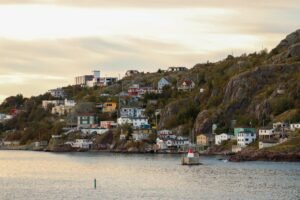Are you considering moving to Canada? Atlantic Canada, with its stunning landscapes, vibrant cities, and welcoming communities, may be the perfect destination for you. This comprehensive guide will walk you through the immigration process to Atlantic Canada, including the provinces involved, available immigration programs, essential requirements, and valuable tips for international applicants.
Provinces Involved
Atlantic Canada comprises four provinces: Newfoundland and Labrador, Prince Edward Island, Nova Scotia, and New Brunswick. Each province offers unique opportunities and advantages for immigrants, making it important to understand the characteristics of each province before making a decision.
Available Immigration Programs
1. Provincial Nominee Program (PNP): Each province in Atlantic Canada has its own PNP, which allows them to nominate individuals who meet specific criteria for permanent residency. The PNP is designed to address the specific labor market needs of each province, making it an attractive option for skilled workers, entrepreneurs, and international graduates.
2. Atlantic Immigration Program (AIP): The AIP is a partnership between the federal government and the four Atlantic provinces. It includes three categories: the Atlantic High-Skilled Program, the Atlantic Intermediate-Skilled Program, and the Atlantic International Graduate Program. These programs aim to attract skilled workers, intermediate-skilled workers, and international graduates who wish to settle in Atlantic Canada.
Essential Requirements
While the specific requirements may vary depending on the immigration program and province, there are some common essential requirements for immigrating to Atlantic Canada:
– Language Proficiency: Demonstrating proficiency in English or French is crucial. Applicants may need to take language tests such as IELTS or CELPIP for English, or TEF for French.
– Education and Work Experience: Having a recognized educational degree or diploma, along with relevant work experience, can significantly improve your chances of being selected for immigration programs.
– Proof of Funds: Applicants must demonstrate that they have sufficient funds to support themselves and their families upon arrival in Atlantic Canada.
– Settlement Plan: A well-thought-out settlement plan that outlines your intentions, goals, and connections in Atlantic Canada is often required.
Tips for International Applicants
1. Research and Choose the Right Province: Take the time to research each province in Atlantic Canada, considering factors such as job opportunities, lifestyle, and community support. This will help you make an informed decision about which province suits your needs and aspirations best.
2. Consult with an Immigration Lawyer or Consultant: Seeking professional advice from an immigration lawyer or consultant can help you navigate the complex immigration process, understand the requirements, and increase your chances of success.
3. Improve Language Skills: Enhancing your language skills in English or French can greatly improve your chances of success in the immigration process. Consider enrolling in language courses or practicing with native speakers to enhance your fluency.
4. Network and Connect: Building connections with people already living in Atlantic Canada can provide valuable insights and support. Join online forums, social media groups, or attend networking events to connect with individuals who can share their experiences and offer guidance.
5. Be Prepared and Organized: Ensure that you have all the necessary documents and information ready before starting the application process. Being prepared and organized will help you avoid delays and ensure a smooth immigration journey.
Remember, the immigration process to Atlantic Canada may seem daunting, but with proper research, preparation, and guidance, you can make your dream of moving to Canada a reality. Take advantage of the available immigration programs, meet the essential requirements, and follow the tips provided to embark on an exciting new chapter of your life in Atlantic Canada.











